Life in Detroit back in the early 40s was idyllic for most—far different than it is today.
America was clawing its way out of the Great Depression and President Franklin D. Roosevelt calmed fears with his homey fireside chats on the radio. Americans were hardy and most exhibited strong work ethic. They had little money, but families stuck together—helped each other, and helped their neighbors as well.
From Promise to War
Kids didn’t have cell phones, IPads, computers, notebooks, X-boxes, video games, cable TV—they didn’t even have TV back then—radio was their communication medium. They played outside with their friends. And they made up most of their games.
Marbles and “hide-and-seek” were popular. They walked or ro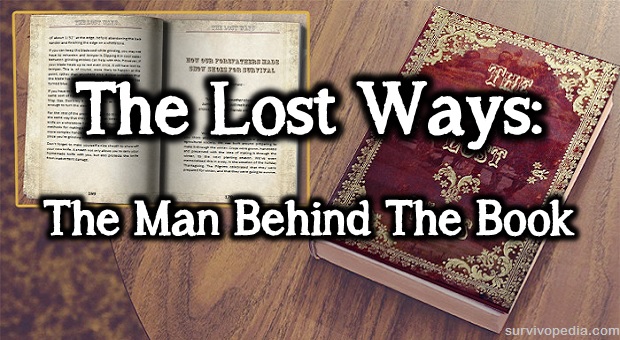
Parents sat on porches, visited with passing neighbors, and watched children play in the neighborhood. Everyone felt safe and secure. If a child disobeyed, any parent in the neighborhood could discipline the child—including spanking. Then when the child got home, they were given another spanking by their own parents.
They didn’t sue each other at the drop of a hat. They learned discipline and respect for adults and the law. And they learned how to survive as a group.
The year 1940 was a good year for America—full of promise. The country was getting back to work, and the Great Depression was fading into history. The window to the world was the radio and families crowded around the big box in the front room every night to listen to their favorite programs—Jack Benny, The Lone Ranger, Fibber McGee and Mollie, and The Shadow.
Every Sunday afternoon, a radio announcer would read the comic section of the local paper—people called them “the funnies.”—imitating the voices of the characters as the children laid on the floor and read along. And most families were poor but content.
Then came Pearl Harbor and suddenly our country was thrust into a long, bitter, and violent war. My older brother remembers when the president announced to the world that America had been attacked and uttered his famous statement: “December 7th, 1941, a day that shall live in infamy …” My brother doesn’t remember what was said, but at one year old, he felt the anger and fear that filled our home.
Soon over a million young Americans were putting on uniforms and going off to fight the Germans in Europe and the Japanese in the South Pacific. Eventually almost 14 million would serve. Our dad joined the fight and spent almost two years in action in the Pacific—particularly Iwo Jima and Okinawa.
We were no longer Catholic or Protestant, Jew or atheist. We were no longer Republican, or Democrat, and our skin color or where we grew up didn’t matter. We were all Americans. We were all in this together, and we intended to win. We were at war.
As American involvement increased, the government soon realized we were rapidly expending vital resources sending men, machines, supplies, and food overseas. Washington knew our resources were limited—although manufacturing immediately ramped up, and 3.5 million women went to work—so an Office of Price Administration was established with directions to ration vital resources. Production of new cars was halted during the War so plants could manufacture planes, guns, tanks, and ships.
When President Roosevelt announced to the country that America would begin rationing, my mother knew instinctively what to do. As a Canadian who grew up on a Mennonite farm where the family grew its own food and scrimped and saved, it wasn’t difficult to repeat this lifestyle. Her family in Detroit joined other Americans—mostly immigrants like her—and cut back on the use of meat, fuel, sugar, coffee, shoes, rubber, and other consumer goods so the troops “would have enough.”
The federal government established War Price and Rationing boards in every community to verify and certify households and issue ration books to buy certain commodities. All heads of households were required to register for ration books containing ration stamps. Each stamp had a simple drawing of a plane, ship, gun, tank, wheat stalk, fruit, or alphanumeric lettering, and a serial number.
The stamps were printed in color—red for meat and butter, blue for processed foods, and gray for general commodities. People could purchase rationed products by using ration stamps or compressed wood fiber token representations of ration points and cash. Tokens were used as change for ration stamps because metal was in such short supply.
Sugar was rationed first—one half pound per person per week—half what people normally consumed. One #30 stamp from book 4 plus cash would get you 5 pounds of sugar. Then chocolate was rationed. Chocolate was being used to make chocolate candy bars for the military. Even coffee was rationed—one pound every 5 weeks.
The national speed limit was reduced to 35 mph to minimize tire wear. The Japanese had taken over all the rubber plantations in Indonesia so rubber was very difficult to obtain. Nylon was needed for parachutes and gun powder bags so sale to civilians was quickly banned. Even after the war in 1945, women’s nylons were not available until late 1947.
Gasoline was carefully rationed based on five levels of need.
- A letter sticker on the windshield identified the level of need. “A” stickers had the lowest priority. The car owner could purchase up to 4 gallons a week. Gas cost 12¢ a gallon back then.
- “B” stickers were for people working in the defense industry. They could buy up to 8 gallons a week.
- “C” was reserved for doctors, who were deemed essential to the war effort.
- “T” stickers were on trucks. They could buy all the gas they needed.
- An “X” sticker gave the holder unlimited access to gas. This sticker was for defense workers, fire fighters, police officers, and ministers. A scandal erupted when about 200 members of Congress were found to be illegally using X ration stamps. Some felt they were above the law.
To help fund the War, children purchased 10¢ victory stamps and pasted them in Victory Book albums that were exchanged for $25 War Savings Bonds when all the stamp spaces were filled. Schools and veteran groups conducted scrap paper drives to extend our supply of paper packing material, and others collected scrap metal for recycling.
Even bacon grease was saved and donated to butchers who collected it and provided it to rendering companies that processed it into glycerine, a substance used for explosives. Some families also used the fat in bacon grease to make soap. My mother did this and used this soap to clean the floors. Because meat, oil, and butter were rationed, she re-used the fat for frying as much as possible before pouring it into a can and turning it into our butcher.
The Lessons We Learned
We became accustomed to shortages and soon more vital commodities were rationed. Adults were allowed 2-1/2 pounds of red meat each week (if it was available). Hamburger cost about 43¢ a pound plus 8 points in ration stamps. Pork chops cost 37¢ a pound plus 7 points in stamps.
Americans found ways to cope. And we found creative ways to make meals. Very few people complained. We considered shortage an inconvenience but not devastating. We shared, we re-purposed old clothes, we handed clothes down to younger kids, we made clothing out of feedbags, we used rags to make warm quilts, and we put cardboard in our shoes to make them last longer. We made do with what we had or made what we needed. This included much of our food.
As the War dragged on, access to even more goods became restricted. In 1943 the government began rationing canned goods. Each person was allocated 48 points of ration stamps per month to buy canned, dried, and frozen food. And people were encouraged to plant gardens in every back yard. President Roosevelt urged all Americans to start “victory gardens” to grow enough fruits and vegetables to help sustain a family through the winter. Posters hung on walls and buildings saying “Plant a Victory Garden – A Garden Will Make Your Rations Go Further.”
A Victory Garden Institute handbook was created with a patriotic red, white, and blue cover. It told people how to start and maintain a home garden. Over 20 million Americans planted gardens in backyards, empty lots, in flower beds, and on rooftops. My mother fell back on her Mennonite upbringing and began to improve soil, compost, and journal her gardening successes and failures.
Today my mother’s journal is a treasure trove of good sage advice for optimum planting, harvesting, and bug control. People talked with their neighbors and like my own parents, millions of Americans grew gardens to produce as much food as they could. If they could produce over five percent of their own food, they felt good. If they could grow over 20% of their own food, they became ecstatic. They shared garden harvests and they taught others how to replicate their success.
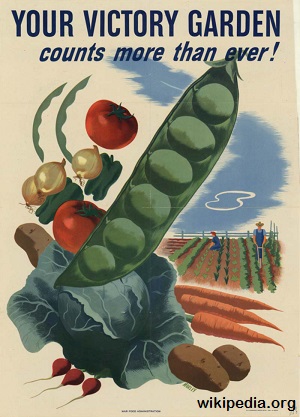
Many of them were drying and canning foods from the time they arrived in this country. So when Roosevelt urged all Americans to preserve foods, many thought, “Yes, we already are.”
Then they expanded their food preservation operations.
Home canning became a major food processing industry, and canning was occurring almost every day. By the end of the War, my mother was canning about 200 jars of food each summer. The family constructed a pantry to hold food stuffs, and we never went hungry. By agreeing to produce four quarts of canned fruit per pound of sugar used, she and other like households could receive extra sugar allotments. We ate well.
Americans are highly adaptable, and we survived rationing and victory gardens quite well. Today the victory garden concept is growing popular once more as people realize that the healthiest foods available are those grown at home.
Just like our grandparents who found ways to survive the Great Depression, adults living when WWII ended carried with them valuable lessons for the future. They hoped for the best, but prepared for the worst.
They identified with their local community, and they learned who had the skills they may need. One skilled person welded and repaired most of the vehicles, wagons, and toys in our neighborhood. My mother conducted canning classes where she taught other women how to safely preserve garden produce and fruits. Before being drafted and shipped out, my father taught how to repair vehicles to get the most miles out of each gallon of gas.
Kids entertained themselves building forts and reading comic books playing together in groups of friends. No one was barred from joining the fun. In the evening, neighbors gathered to play cards and board games. Everyone knew everyone else and all felt safe and secure in their close neighborhoods.
As Americans we respected faith, family, and community. We didn’t flaunt our religion. We respected all religions. And we accepted a duty to help others while living within our own means. We learned and taught new skills and we worked together to develop capabilities that would benefit all.
We never knowingly left any family without food, water, or shelter. But we expected each person to do everything they could for the benefit of all—to help carry their own load. And we corrected our own problems. There were those who abused the system, but because they lacked character and integrity, we moved beyond them and they were soon left behind. For us, we never felt alone. And we survived as a community.
References
https://en.wikipedia.org/wiki/Victory_garden
http://www.genealogytoday.com/guide/war-ration-books.html


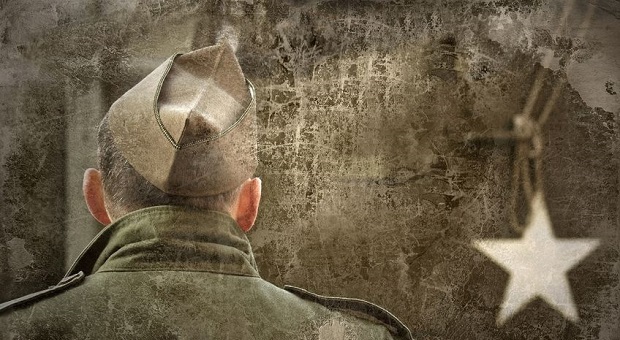
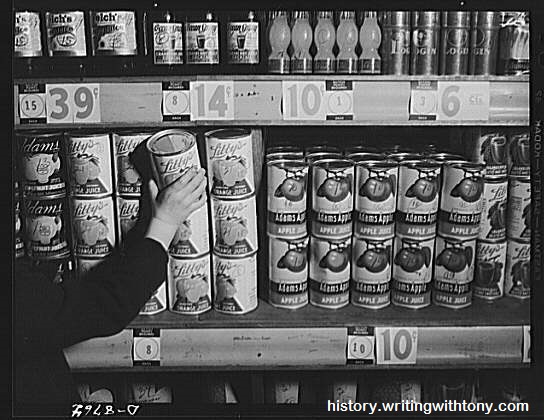


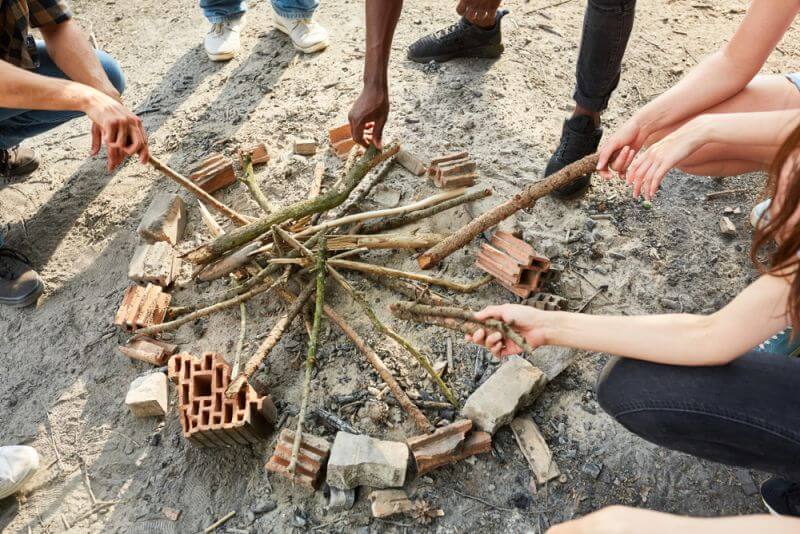
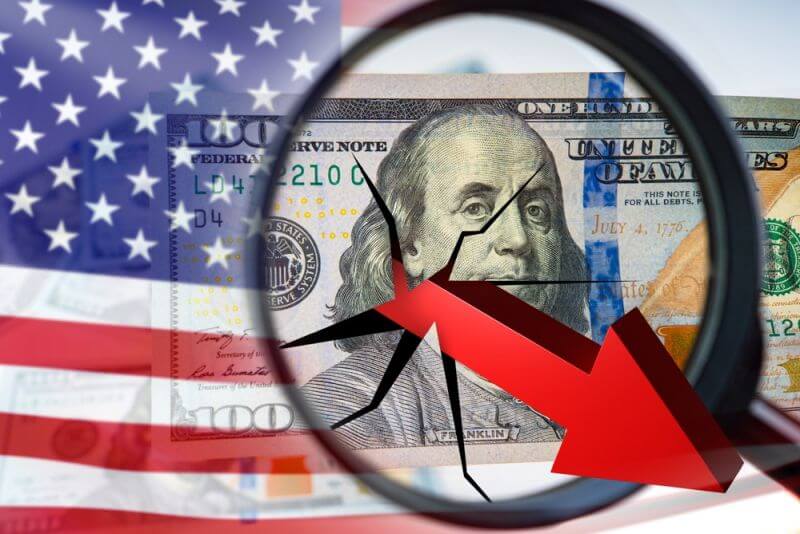
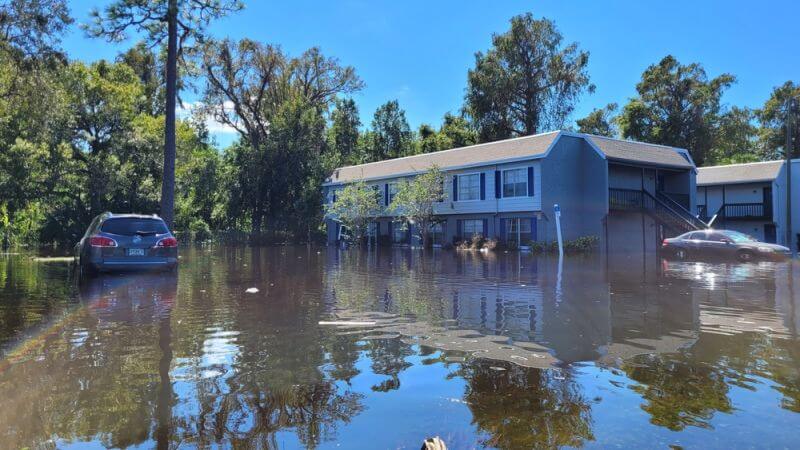
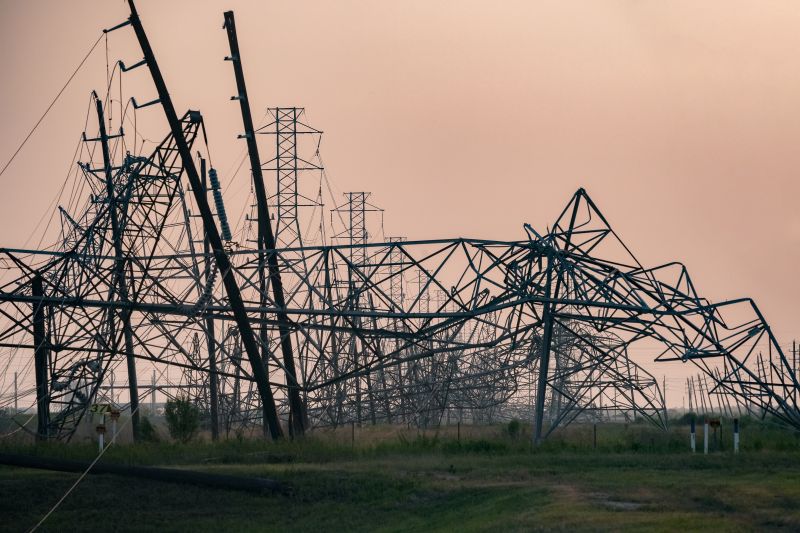

Janis Fisher | July 22, 2016
|
Robert Brenner captures the American culture and attitudes that made our county at that time ‘the greatest generation.’ Contrast that now to all the self-serving people who are ‘entitled’ to every conceivable luxury, food, housing, medical and dental care, without contributing any work whatsoever. See what I mean in Ann Coulter’s book, Adios America. We need to get back to what is supremely important–our faith, family, independence, freedom and self-reliance. Emerson has it right.
Ted | July 22, 2016
|
Great article! Too bad most people don’t think like that anymore! Welfare has bred it out of most everybody on this planet!
It’s going to be a real catastrophe once the war gets into full swing. Oh well, everyone has been warned! If they choose to ignore the warnings, then they perish in ignorance! I’m certainly not going to let my family go hungry by sharing with the ignorant!
Paul Velte | July 22, 2016
|
Government welfare has turned what should be gratitude into a demand. The road to hell is paved with good intentions. And that’s where the good -intentioned welfare programs seem to be taking us. It’s time to revert to the old ways of private charity, not government forcible redistribution.
Ted | July 22, 2016
|
Great article! Too bad most people don’t think like that anymore! Welfare has bred it out of most everybody on this planet!!!
It’s going to be a real catastrophe once the war gets into full swing. Oh well, everyone has been warned! If they choose to ignore the warnings, then they perish in ignorance! I’m certainly not going to let my family go hungry by sharing with the ignorant!
Russ Mathuss | July 22, 2016
|
HI: I am one of those Great Generations of WWII. I went in the navy right after
I finished High School . I was assigned to the 5th fleet that operated along the equator, at the end of the war all ships could not go in to Tokyo Bay, we were assigned to Sidney Australia. We made out better on that deal,at least the people
spoke English.But all good things come to an end,soon we were headed back to the states, then we were assigned to operation Bikini in the Marshalls Islands
There we were in on both of the shots of the Adam Bomb,after that we headed back to the states.
Ada Singleton | July 23, 2016
|
Thank you, sir, for your service and sacrifices to the service of this country. I greatly appreciate it.
trogg | July 22, 2016
|
My parents lived in the Bronx during the depression and World War 2. They related to me, that it was common for the mafia to steal windshields with rationing stickers attached, and resell them. Not everybody was honest.
RICK | July 23, 2016
|
FYI; I HAVE A PROBLEM WITH MAPLE SYRUP. WHEN I OPEN A BOTTLE SAY, 12 OZ OR LESS AND POUR THE SYRUP OUT AND RECAP, WITHIN A FEW WEEKS A MOLE STARTS GROWING ON THE INSIDE OF THE BOTTLE ON THE SIDE OF THE GLASS, NOT IN THE SURUP, YET. THEN MORE TIME GOES BY THE MOLE STARTS GROWING IN THE SYRUP ALSO AND I HAVE TO THROW THE BOTTLE OUT.
THE POINT HER IS THAT ONCE YOU OPEN THE BOTTLE IT DOES NOT STORE WELL, MY STORAGE WAS IN THE KITCHEN I REMOVED IT FROM THERE AND PLACED IN A COOOLING PLACE WITH AIR CIRCULATION, ABOUT THE SAME RESULTS. ***** ANYBODY HAVE A ANSWER****
Sharon Kellogg | July 4, 2019
|
I too have had this problem. Sure hope someone has the answer. [email protected]
Ada Singleton | July 23, 2016
|
My parents grew up during WWII and told me many stories of rationing, bartering, and Victory Gardens, as well as stories of what they did growing up for entertainment. I could sit for hours and listen to my Grandpop’s stories about being in the Army during the war. Their generations knew what it meant to care about others, work hard for a living and gather together in worship.
seedy | July 27, 2016
|
so sad an entire country can pay the price in every way for money serving elites pursuing their insatiable quest for more more more; guess if one was invested in the machines of war it would be vital to always have an enemy…
Andy stampfli | July 27, 2016
|
Since this article was on wwII and you wrote your response in English I’m left to believe you couldn’t see the lesson of people having to fend for themselves in hard times pulled the country together. No one here in America could have cared less what Hitler had for dinner as long as he choked on it. My grandparents always told me the didn’t miss anything because they didn’t have it to start with. They had food because and only because THEY MADE IT. From the garden or from the pens it was their’s because they made it themselves. The point of this article want it someone else’s fault. It’s yours and yours alone. If the store is out of food is it their fault your hungry or yours for not seeing it coming like everyone who listened to their grandparents telling us work for tomorrow not today.
John Glover | July 27, 2016
|
Great article. As if my dad wrote it. He died in 1960. I was 12 but he taught me a lot in those 12 years. I wrote a free ebook on what I think Americans will have to do to save America for the next generation. If interested it is here.
http://freeamericablogger.blogspot.com/
Jerry D Young | June 27, 2019
|
One thing sure has not changed. Congress people abusing the system.
Just my opinion.
Pam Magnuson | June 27, 2019
|
I loved your article. I was there. I was born in 1934, so I grew up during “those years.” My dad was a telegraph operator during the war, and I remember at age 5 standing by the railroad tracks waving to the soldiers on the train, as they headed east for deployment. All the women I knew sewed, canned, gardened, cooked great meals, and kept clean orderly houses. That;s just how it was. I listened to the radio after school.I didn’t have a TV until 1975. One thing that seems to be true is , if you’ve never had it (a telephone for example) you don’t miss it. Our first house didn’t have in door plumbing either. But I didn’t miss it because I’d never had it. We had a wood stove and a bucket of water from the well on the counter.
My mother made fabulous cinnamon rolls and cookies. In the summer we would ride horses to the lakes up on the National Divide and my dad would fish for rainbow trout. Mother cooked it in corn meal and bacon grease. Oh yum. yum.
It’s really sad that young people today seem to think “they” ought to do everything for them. Someone asked me if I had student loans from college. No, I replied. I worked my way through college. (Got good grades, too.) That stopped the conversation flat. To owe someone money was shameful. Debts were paid before food was put on the table. I’m still that way. I’m a big fan of Ralph Waldo Emerson and my ancestors. Even at 84 I garden, can, cook, spin wool, weave it, make soap once a year, I know how to do a lot of “men’s work” because I’ve been widowed twice. Do it yourself. I know how to preserve fresh meat without a refrigerator, I can sew my own clothes, do embroidery, make curtains. It’s just the things women ought to do, and it’s very fulfilling. I also know how to hunt, clean game, and clean my weapon after I use it. I learned how to tan hides, too.
Life is good.
Pam Magnuson | June 27, 2019
|
The maple syrup problem It’s because of the sugar content in the syrup. Keep your syrup in the refrigerator. I keep maple syrup for years, but it always in the refrigerator. Also, don’t leave the cap off for a long time. More mold will get in. Use what you want and put the lid right back on.
OrahLee Hoose | June 27, 2019
|
Rick. Maple syrup shouldn’t molD. I think you may have purchased a syrup that is diluted with water and flavorings added, or perhaps what you are seeing is crystallization of the sugar that is in the syrup. I personally have never had syrup mold, and though I seldom use syrup, I have it on hand always. Check the suggestions and if those things don’t fix it, next time you get new maple syrup keep it in the frig, and the worst you will have is lots of sugar crystals that will melt when you warm up the syrup.
Edwin Thomas Lee | June 27, 2019
|
My father was captured by the Imperial Japanese Army on Bataan April 10, 1942. He earned his Purple Heart within the first ten minutes by a buttstroke to the head for having dropped his Texas A&M 1941 Class Ring into Manila Bay when his captor noticed the white skin on his finger. He weighed 80 # until late August of 1945. He taught me to not be a picky eater and to avoid letting the wrong people have
the upper hand.
Lois Lister | June 28, 2019
|
I sincerely thank your father for his service. You must be very proud of your Aggie father!
rod Clark | June 28, 2019
|
My grandfather had a good job thru the Depression at least 3 days a week he had work supplying hardware to the automotive plants making cars and then the same plants making war vehicles in oakville and oshawa. During the Depression he would drive up to the holland marsh and fill his car with bags of potatoes then bring them into west Toronto and distribute them among his relatives and friends who weren’t working. No one starved. His widowed MIL knit wool socks for the merchant navy sailors on the north Atlantic run. My mother worked for imperial oil while my father serviced in the navy on the east coast. My great uncle had been a pilot in the British air force in North Africa in ww1. He was too old to reenlist but had a wartime manufacturing job in Detroit thru ww2. One of my uncle’s was an art student in France when ww2 broke out and he had to break off his studies and come home to Toronto right away. His younger brother was only in junior high and entered the car & truck repair business quite young, servicing fire trucks, ambulances, and police cars. After the war ended he opened a sporting goods distributorship. A lot of this I never knew until after my grandmother came to live with me & my 2nd wife in the late 1980s right after her 100th birthday.
rod Clark | June 28, 2019
|
My mother learned to sew to repair clothes and to knit during the great depression. All her life she knitted socks and made clothes from paper patterns. She could can, and often did specialty items.
Many things were back to normal by 1947 but our family did not have a car until 1953. Fortunately my dad had a job where he could use the company panel truck to take us to see our grandparents in west Toronto or Peterborough on Sundays. We didn’t buy our first house until I was 5-1/2 & back then there were no subdivisions, each house was custom built on a lot. Our next house was in a subdivision in what is now Mississauga, we were on the west bank of the ETOBICOKE creek which separated Toronto from port credit. I was 7-1/2, in grade 2. Television came to canada a year after the USA & our first tv was a 19″ b&w ADMIRAL set with rabbit ears. That was 1952-53. By the 1970s i had repaired that set multiple times and we scrapped it. At first we used the cabinet for a speaker from my youngest brothers rock band and then in my first house the tv cabinet became a workbench on which i assembled many furniture projects. I built all of our earliest furniture until the early 1980s.